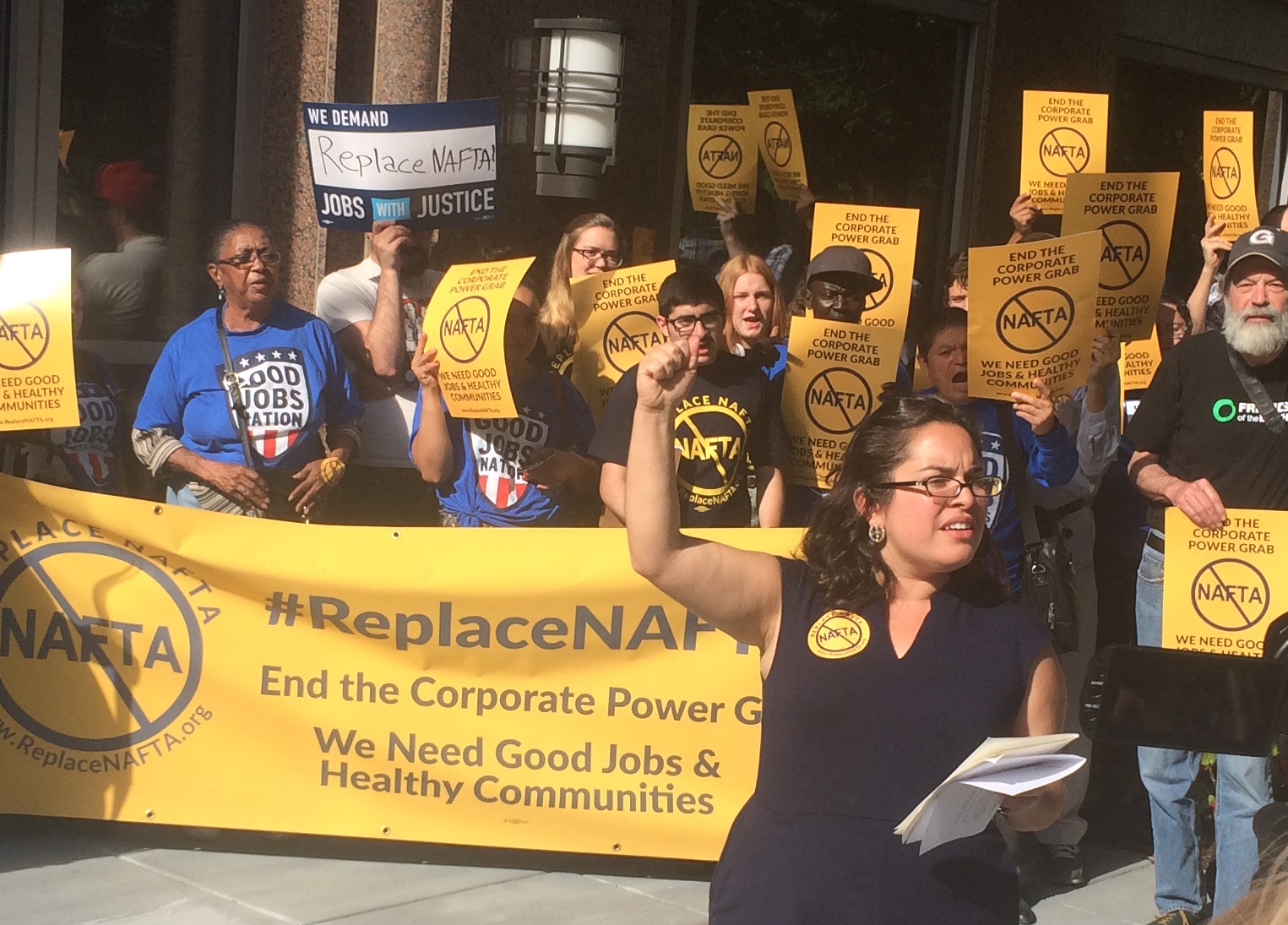Anticipating the 2026 CUSMA review
A Trade and Investment Research Project bulletin from the Canadian Centre for Policy Alternatives | June 2024
Anticipating the 2026 CUSMA review
The mandatory six-year review of the Canada-U.S.-Mexico Agreement (CUSMA) is still more than two years away, but TIRP researchers are ahead of the game. Last week, the CCPA released a collaborative report on the CUSMA sunset clause and review period, with 25 detailed recommendations for reforming the treaty from TIRP researchers Mark Rowlinson, Simon Archer, Laura Macdonald, Angelo DiCaro, Gavin Fridell, Mary McPherson and yours truly.
The federal government and business associations appear united in the view that Canada should seek a smooth rollover of the "New NAFTA" rather than risk another high-profile showdown with Washington. This scenario seems unlikely given corporate and political pressure in the U.S. to reopen CUSMA in areas such as dairy market access, energy, agriculture and food policy, automotive rules-of-origin, and digital trade.
What’s more, the CUSMA sunset clause (in Art. 34.7) was inserted by the Trump administration precisely to cause stress for Canada and Mexico. “The whole point [of the review] is to maintain a certain level of discomfort,” confirmed United States Trade Representative Katherine Tai in March. In any case, agreeing to simply reboot the current agreement for another six years would be a lost opportunity to improve the parts that are delivering for workers.
No matter who wins office in November’s U.S. elections, the worker-centred trade policy of the current U.S. administration will likely live on. For political, geoeconomic and national security reasons, a bipartisan consensus has emerged on the need to renew North America’s manufacturing base and better protect workers from subsidized—financially or through weaker labour and environmental standards—foreign competition.
The newly elected president of Mexico, Claudia Sheinbaum (pictured above), has pledged continuity with AMLO in economic matters, with the Mexican government recently saying it wants to make CUSMA’s labour provisions more symmetrical across North America. So do we.
Making the Most of the CUSMA Review, which was reported on by Inside U.S. Trade this week, therefore proposes reforms to the agreement’s labour rights provisions, its innovative rapid-response labour mechanism, automotive rules-of-origin, and the environment chapter. Other aspects of the agreement—digital trade, gender, Indigenous Peoples, dispute settlement—could also be made more inclusive and worker-centric under the right circumstances and with sufficient political will.
You can find a PDF of the report here or click below to read individual chapters on the CCPA Monitor website.
- The 2026 CUSMA review: prepare for the worst, plan for progress (includes the 25 recommendations)
- Labour rights, migrant workers and the CUSMA rapid-response labour mechanism
- Rules-of-origin and automotive trade
- Environment and climate
- Digital trade, worker rights and privacy
- Dispute settlement and investor protection
- Gender and inclusive trade
I have an op-ed on the TIRP report in the National Observer today.
TIRP at trade committee
As luck would have it, the release of Making the Most of the CUSMA Review coincided with the start of hearings on the 2026 sunset period at the House of Commons international trade committee (CIIT). I was one of the witnesses on May 30, along with fellow TIRP researcher Angelo DiCaro (Unifor), who presented with Unifor President Lana Payne on the need to update CUSMA’s rules-of-origin to capture more of the electric vehicle supply chain.
Payne also pointed out that allegations of illegal anti-union harassment at the Mercedes plant in Alabama would have triggered a CUSMA rapid-response labour mechanism complaint had they occurred in Mexico. This underlines the need to apply the same labour rules and enforcement tools across all of North America, said Payne, adding:
"Canada should demand a full investigation into this trade-distorting behaviour, especially since Canada has a deal to supply Mercedes with lithium, cobalt, and other critical minerals. Canada should also clearly signal to the U.S. its intent to revisit a proposal to deem Right to Work laws a violation of the CUSMA labour chapter."
My presentation summarized the case for a broad review and reform of CUSMA to make it more worker- and climate-focused, and I had time in the Q&A to go over many of the recommendations in the TIRP report. The committee is translating our conclusion and recommendations into French so that they may be included in the consideration of findings and an eventual report on the 2026 review.
Committee hearings continue this afternoon with another two TIRP associates on deck: Elizabeth Kwan of the Canadian Labour Congress (joined by Executive Vice-President Siobhán Vipond) and Claude Vaillancourt, spokesperson for the Québec Network for Inclusive Globalization (RQMI). They will be joined by former Canadian trade negotiator Steve Verheul, Joshua Meltzer of the Brookings Institution, and two representatives from the Canadian Trucking Alliance.






